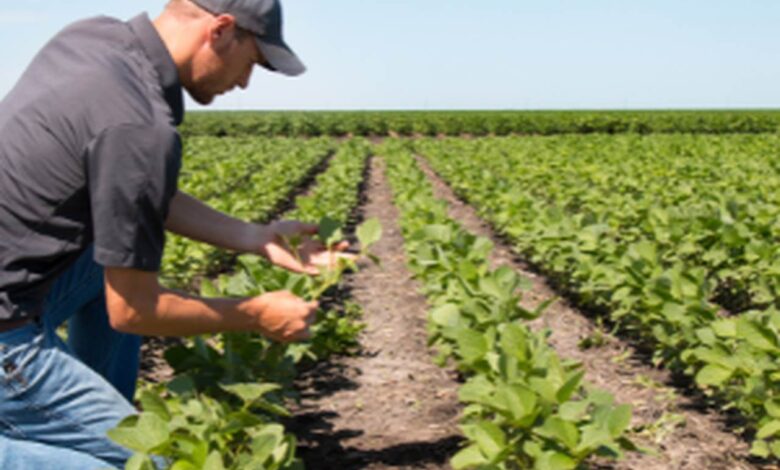Farm workers Jobs In Canada With Visa Sponsorship

Farm worker jobs in Canada offer a vital role in the agricultural sector, contributing to the production and management of crops and livestock. With a variety of positions available, understanding the visa application processes, job eligibility requirements, benefits, salary ranges, and application procedures is essential for those looking to start or advance their careers in farming. This comprehensive guide will provide you with all the necessary information to navigate the farm worker job market in Canada.
1. Overview of Farm Worker Jobs
Farm workers are responsible for various tasks related to crop production, animal care, and farm maintenance. Their roles are crucial in ensuring the smooth operation of agricultural activities.
Common Farm Worker Roles
- Field Worker: Assists with planting, cultivating, and harvesting crops.
- Livestock Worker: Cares for animals, including feeding, milking, and maintaining animal health.
- Farmhand: Performs general farm duties, including equipment maintenance and repair.
- Greenhouse Worker: Manages the growth of plants in controlled environments.
2. Job Eligibility Requirements
To work as a farm worker in Canada, candidates must meet specific eligibility requirements. These requirements can vary based on the type of farm work and the region where you plan to work.
Basic Requirements
- Age: Most farm worker positions require candidates to be at least 18 years old.
- Education: A high school diploma or equivalent is generally preferred but not always required.
- Experience: Prior experience in farming or agriculture can be beneficial, but many positions offer on-the-job training.
Skills and Attributes
- Physical Stamina: Farm work can be physically demanding, requiring lifting, bending, and long hours outdoors.
- Attention to Detail: Precision in tasks such as planting, harvesting, and animal care is crucial.
- Adaptability: Ability to handle various tasks and adapt to changing conditions on the farm.
- Teamwork: Working effectively as part of a team is often essential in farm environments.
3. Visa Application Processes
For international applicants seeking farm worker jobs in Canada, obtaining the appropriate visa is a crucial step. Here are the main visa options:
Temporary Foreign Worker Program (TFWP)
- Purpose: The TFWP allows Canadian employers to hire temporary foreign workers for specific roles, including farm workers.
- Eligibility: Employers must obtain a Labor Market Impact Assessment (LMIA) to prove there is a need for a foreign worker.
- Application Process: Once the LMIA is approved, applicants can apply for a work permit through Immigration, Refugees and Citizenship Canada (IRCC).
International Experience Canada (IEC)
- Purpose: The IEC program allows young individuals from certain countries to work in Canada temporarily, including on farms.
- Eligibility: Applicants must be from a participating country and meet age and other criteria.
- Application Process: Apply through the IEC portal, and if selected, receive a work permit to work in Canada.
Provincial Nominee Program (PNP)
- Purpose: The PNP allows provinces and territories to nominate individuals for permanent residency based on local labor market needs, including farm workers.
- Eligibility: Requirements vary by province, but farm workers are often in demand in rural areas.
- Application Process: Apply to the PNP of the province where you wish to work, receive a nomination, and then apply for permanent residency.
4. Benefits of Farm Worker Jobs
Farm worker jobs in Canada come with various benefits that make them an appealing career choice.
Health and Wellness
- Health Insurance: Many employers provide health insurance plans, including medical, dental, and vision coverage.
- Paid Time Off: Includes vacation days, sick leave, and sometimes paid holidays.
- Retirement Plans: Options such as 401(k) plans with employer matching contributions may be available.
Professional Growth
- Skill Development: Opportunities to gain skills in various aspects of farming, including crop management, animal husbandry, and equipment operation.
- Career Advancement: Potential for career growth into roles such as farm manager or supervisor.
Personal Satisfaction
- Impactful Work: Contributing to food production and agricultural sustainability can be deeply fulfilling.
- Work Environment: Many farm workers enjoy working outdoors and being part of a close-knit team.
5. Salary Range for Farm Worker Jobs
Salaries for farm worker jobs in Canada can vary based on the role, location, and level of experience. Here’s a general overview:
Average Salary by Role
- Field Worker: $30,000 – $40,000 per year
- Livestock Worker: $35,000 – $45,000 per year
- Farmhand: $30,000 – $40,000 per year
- Greenhouse Worker: $32,000 – $42,000 per year
Factors Influencing Salary
- Location: Salaries can differ based on the cost of living and demand in various provinces and regions.
- Experience: More experienced farm workers can command higher wages.
- Type of Farm: Specialized farms, such as those dealing with high-value crops or livestock, may offer higher salaries.
6. Application Process for Farm Worker Jobs
Applying for a farm worker job in Canada involves several key steps:
1. Job Search
- Online Job Boards: Websites like Indeed, Glassdoor, and LinkedIn list numerous farm worker job openings.
- Company Websites: Check the careers section of agricultural companies and farm operations.
- Recruitment Agencies: Specialized agencies can help you find farm worker positions.
2. Prepare Your Resume and Cover Letter
- Resume: Highlight relevant experience, skills, and any certifications related to farming.
- Cover Letter: Customize your cover letter to the specific job and employer, emphasizing your qualifications and interest in farm work.
3. Submit Your Application
- Online Applications: Follow the instructions on job boards or company websites to submit your resume and cover letter.
- In-Person Applications: Some employers may accept applications directly at their farms or offices.
4. Interview Process
- Initial Screening: May involve a phone or video interview to assess basic qualifications.
- In-Person Interview: Includes questions about your experience, skills, and ability to handle farm tasks.
5. Background Check and References
- Background Check: Employers may conduct background checks to verify your employment history and criminal record.
- References: Provide references from previous employers or supervisors in the agricultural sector.
6. Job Offer and Onboarding
- Job Offer: If selected, you’ll receive a job offer outlining the salary, benefits, and other terms of employment.
- Onboarding: Includes orientation, training on farm procedures, and familiarization with equipment and safety protocols.
7. Other Relevant Requirements
Work Authorization
For international applicants, ensuring you have the appropriate work authorization or visa is essential before starting employment.
Certifications and Training
Some farm worker roles may require specialized training or certifications, such as safe handling of pesticides or equipment operation.
Safety Regulations
Adherence to safety regulations is crucial to ensure a safe working environment and compliance with Canadian agricultural laws.
Conclusion
Farm worker jobs in Canada offer a fulfilling and essential career path for individuals interested in agriculture and outdoor work. By understanding the job requirements, visa processes, benefits, salary ranges, and application procedures, you can effectively navigate the job market and find a position that suits your skills and career goals. Whether you’re an experienced farm worker or new to the field, the agricultural sector in Canada provides numerous opportunities for growth and advancement.





